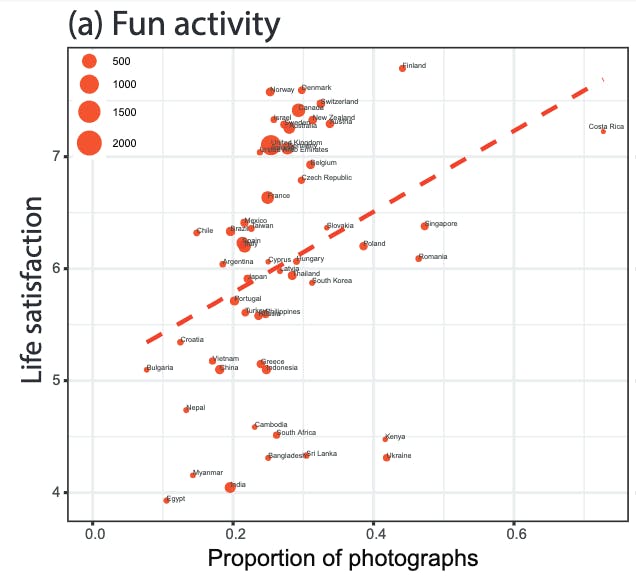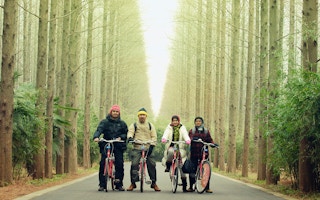What is the relationship between nature and happiness?
To continue reading, subscribe to Eco‑Business.
There's something for everyone. We offer a range of subscription plans.
- Access our stories and receive our Insights Weekly newsletter with the free EB Member plan.
- Unlock unlimited access to our content and archive with EB Circle.
- Publish your content with EB Premium.
Researchers from the National University of Singapore went through 31,500 photographs across 185 countries to answer this question.
In a study published in prominent journal Scientific Reports, the research team revealed that pictures of honeymoons, vacations and other positive experiences posted online had more nature elements than those of routine daily tasks.
The report illustrated the concept of biophilia, or people’s innate tendency to seek connection with nature, and showed people associate nature with happy events, said one of the study’s authors Dr Chang Chia-chen, a research fellow at the National University of Singapore’s Faculty of Science.
“This finding, which is consistent across different countries, provides global evidence that countries with photos of more plants in the background when they have fun activities tend to have higher life satisfaction,” Chang told Eco-Business.

Countries which have more elements of nature in photographs tagged as #fun and #activities such as Costa Rica and Finland, which correlated with high llfe national satisfaction scores. In Asia, Singapore had the most nature tags in photos surveyed. Image: NUS
Singapore emerged as the Asian country with the highest number of nature tags in their surveyed photographs, while other Asian countries like Thailand, South Korea, Japan, China and the Philippines had fewer nature elements in their posts.
Finland and Costa Rica were the countries with the most elements of nature globally.
The three frontrunners—Finland, Costa Rica and Singapore—possessed the highest life satisfaction rating when referenced against the scores indicated in the World Happiness Report 2019, supporting the biophilia hypothesis.
“
The study shows the impact of nature, and how the loss of nature may indicate that we may lose the background to our fondest memories, which are of nature.
Dr Chang Chia-chen, lead author and research fellow, Faculty of Science, National University of Singapore
In their investigation, researchers analysed the content of photos in popular social media platform Flickr, using artificial intelligence image detector Google Cloud Vision API.
The image recognition detector identified “nature” elements in photos like plants and trees, then generated a word cloud showing the most common nature labels in the photographs. The most nature labels were found in photographs tagged #fun and #activities.
Using photos taken over the past 11 years, researchers assessed how people experience nature in social contexts, from daily routines to those that were likely to reflect people’s choice of favourite places when holding memorable events in their lives, such as fun activities, weddings, celebrations, honeymoons, and vacations.
These results suggest the importance of nature in providing the backdrop to positive social contexts, like fond memories, as well as in contributing to life satisfaction of its residents, read the study.
The report cited examples of photographs surveyed, such as those showing the Satoyama landscape in Japan, which was regarded as “home” for many Japanese people, while photos of other famous natural landscapes have been identified as being of important cultural value to local communities such as the Arafura-Timor seascape in Southeast Asia.
“The study shows the impact of nature, and how the loss of nature may indicate that we may lose the background to our fondest memories, which are of nature,” Chang said. “Protecting our natural environment won’t only have ecological and economic benefits. It will also help us lead happy lives in the future.”








